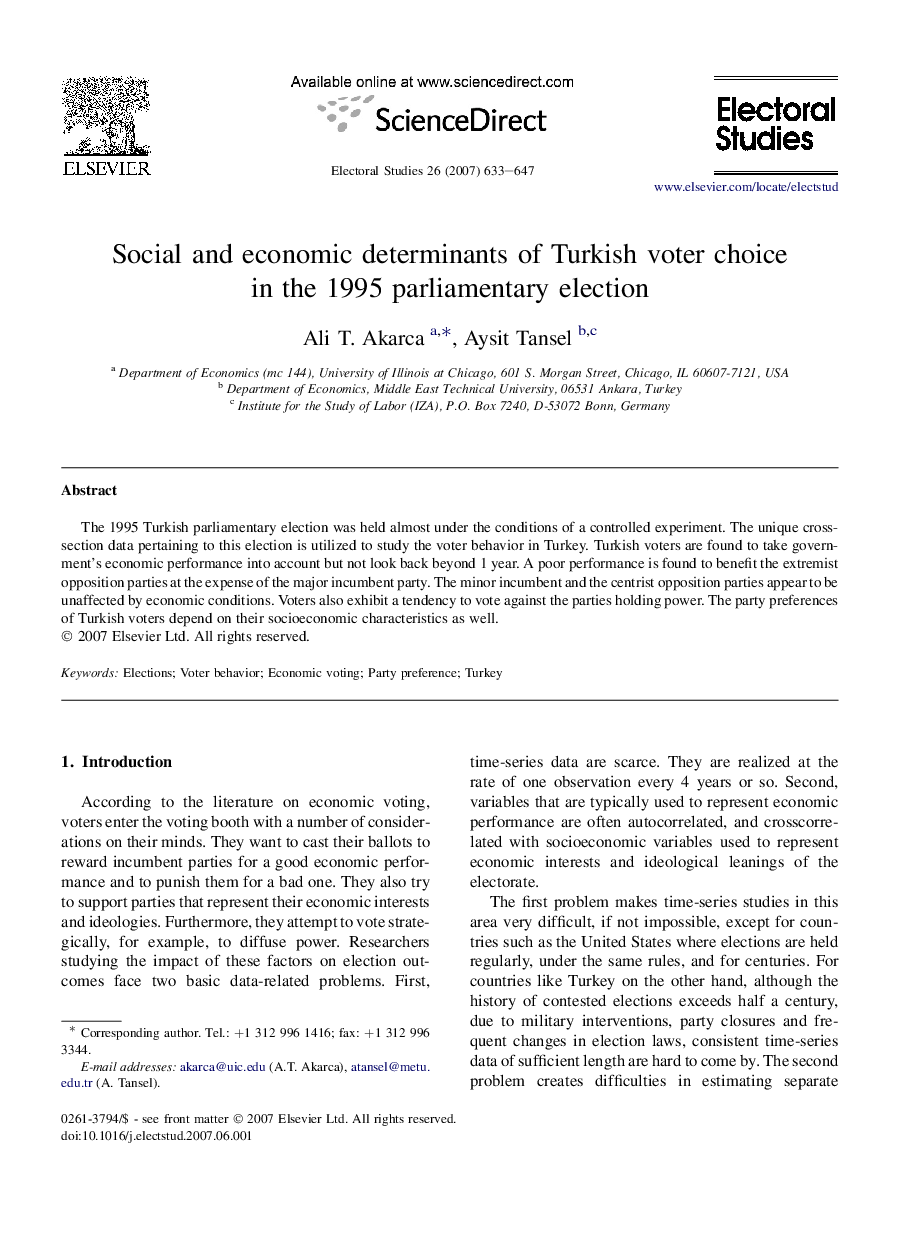| Article ID | Journal | Published Year | Pages | File Type |
|---|---|---|---|---|
| 1052548 | Electoral Studies | 2007 | 15 Pages |
Abstract
The 1995 Turkish parliamentary election was held almost under the conditions of a controlled experiment. The unique cross-section data pertaining to this election is utilized to study the voter behavior in Turkey. Turkish voters are found to take government's economic performance into account but not look back beyond 1 year. A poor performance is found to benefit the extremist opposition parties at the expense of the major incumbent party. The minor incumbent and the centrist opposition parties appear to be unaffected by economic conditions. Voters also exhibit a tendency to vote against the parties holding power. The party preferences of Turkish voters depend on their socioeconomic characteristics as well.
Related Topics
Social Sciences and Humanities
Social Sciences
Geography, Planning and Development
Authors
Ali T. Akarca, Aysit Tansel,
